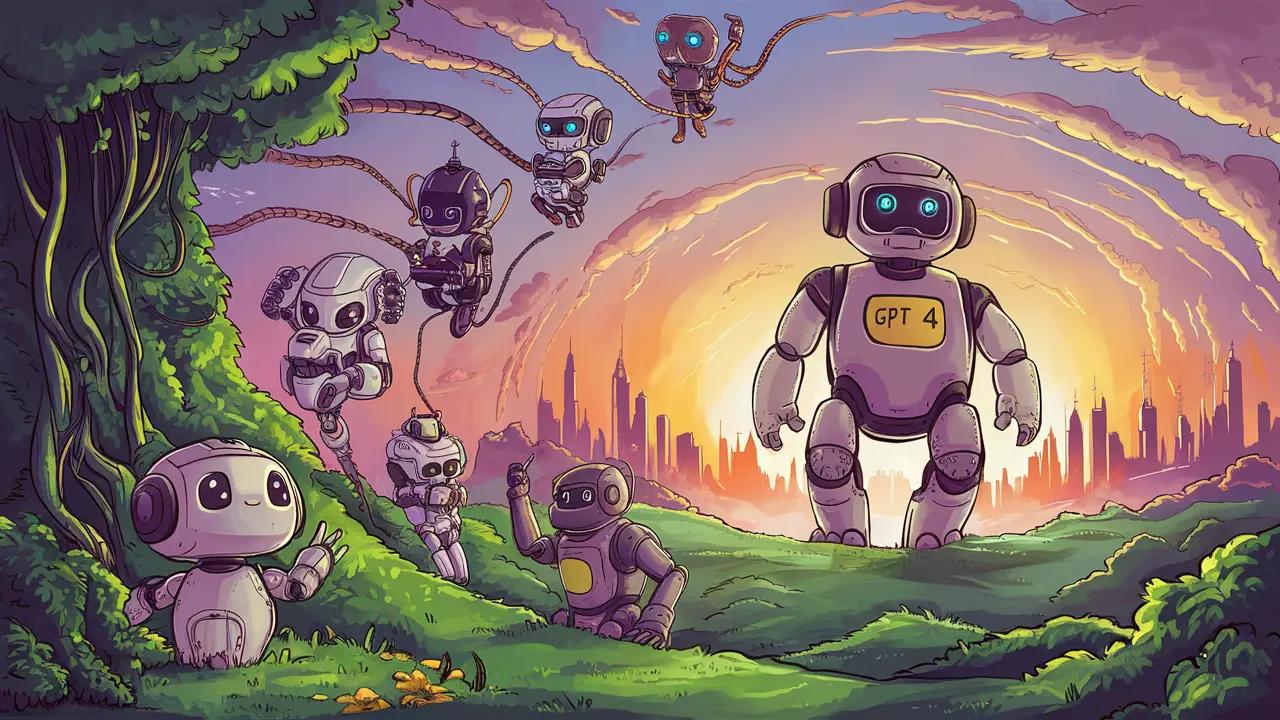May 2, 2024|4 min reading
Different types of AI: From Basic AI to GPT-4

Welcome to the first installment of our "Code to Care" series, where we unveil the AI and ML revolution. Due to your enthusiastic feedback and insightful suggestions, we're launching with a topic many of you are curious about: the different types of AI. From foundational technologies to sophisticated models like GPT-4, we'll explore how these innovations are not just technological feats but also catalysts for broader societal changes.
What is Artificial Intelligence (AI)?
Artificial Intelligence, or AI, is a broad field in computer science that's aimed at building machines capable of performing tasks that typically require human intelligence. These tasks include learning, reasoning, problem-solving, perception, language understanding, and more. AI can be as simple as a chess program or as complex as a self-driving car.
Historical Context
The concept of AI dates back to the myths of ancient civilizations, but it wasn't until the 20th century that it became a formal field of academic study. In 1956, the term "Artificial Intelligence" was coined at the Dartmouth Conference, marking the official beginning of AI as a scientific discipline.
Machine Learning (ML)
Machine Learning is a subset of AI focused on algorithms that allow computers to learn from and make decisions based on data. Unlike traditional programming, where tasks are explicitly programmed, ML enables systems to learn and improve from experience without being explicitly programmed.
How It Works
Machine learning uses statistical techniques to give computer systems the ability to "learn" from data, directly from inputs, and make predictions or decisions. Common applications include email filtering, speech recognition, and computer vision.
Generative AI
Generative AI refers to algorithms that can generate new content, from text to images and music. This type of AI learns from a vast array of samples and then uses this knowledge to generate new, similar content.
Examples of Generative AI
- DALL-E: A model designed by OpenAI that can generate images from textual descriptions.
- GPT-4: The latest in the series of generative pretrained transformers, capable of producing human-like text based on the input it receives.
Large Language Models (LLMs)
A significant subset of generative AI, Large Language Models (LLMs) are trained on a vast corpus of text data. These models understand and generate human-like text, and can perform a variety of language-based tasks.
GPT-4: A Case Study
GPT-4, developed by OpenAI, is a state-of-the-art language model that has captivated the tech world. Its ability to generate coherent and contextually relevant text across many subjects has numerous applications, from writing assistance to customer support.
Ethical Considerations in AI
As AI becomes more integrated into our daily lives, ethical concerns grow. Issues such as privacy, bias in AI algorithms, and the displacement of jobs are hot topics that need addressing.
Regulatory Landscape
Recent initiatives, like the executive order on AI issued by the White House, highlight the need for guidelines that ensure the development of AI technologies is safe, ethical, and beneficial for all.
Conclusion
The landscape of artificial intelligence is vast and complex, but understanding the basic types helps demystify the field and highlights the profound impact AI has on our world. As we continue to explore AI's capabilities and challenges in our "Code to Care" series, stay tuned for more insights into how these technologies are reshaping our lives.
Explore more

How to Write Effective AI Prompts: A Complete Guide
Learn how to write effective AI prompts to get the best results from AI tools. Improve your productivity with this promp...

Top 10 Best AI Tools for Productivity in 2024
Discover the best AI tools to boost productivity in 2024. Optimize your workflow with Jasper AI, Trello, Grammarly, and ...

Unleashing the Power of Small AI Models: Public WiFi & Edge as the Enablers
Discover how small AI models enhance efficiency and security using public WiFi and edge computing.
